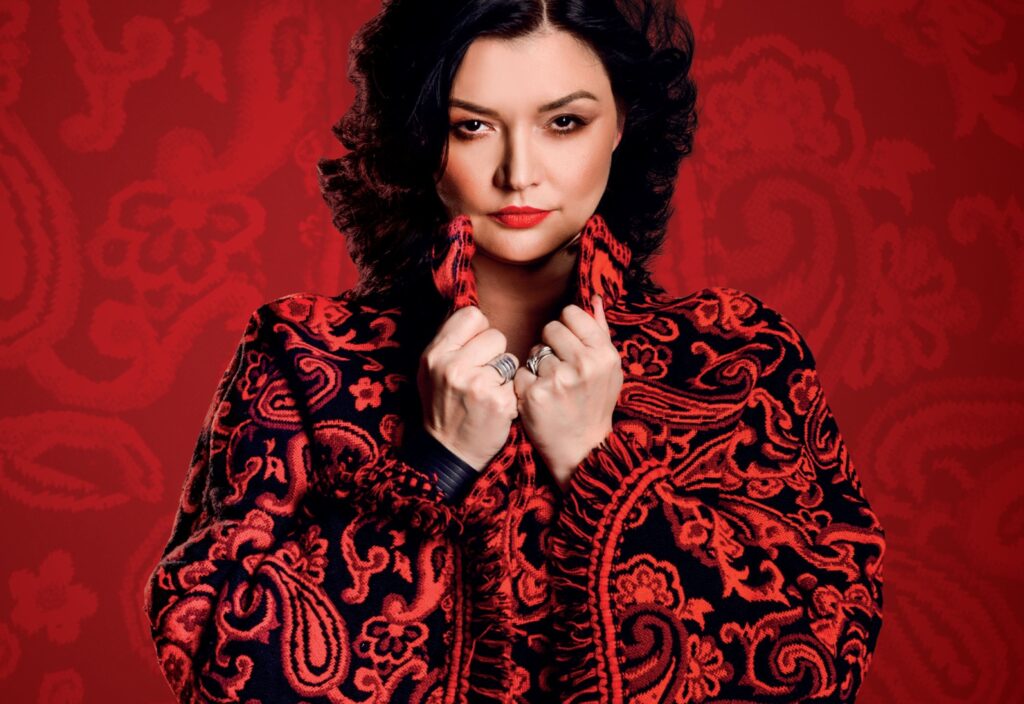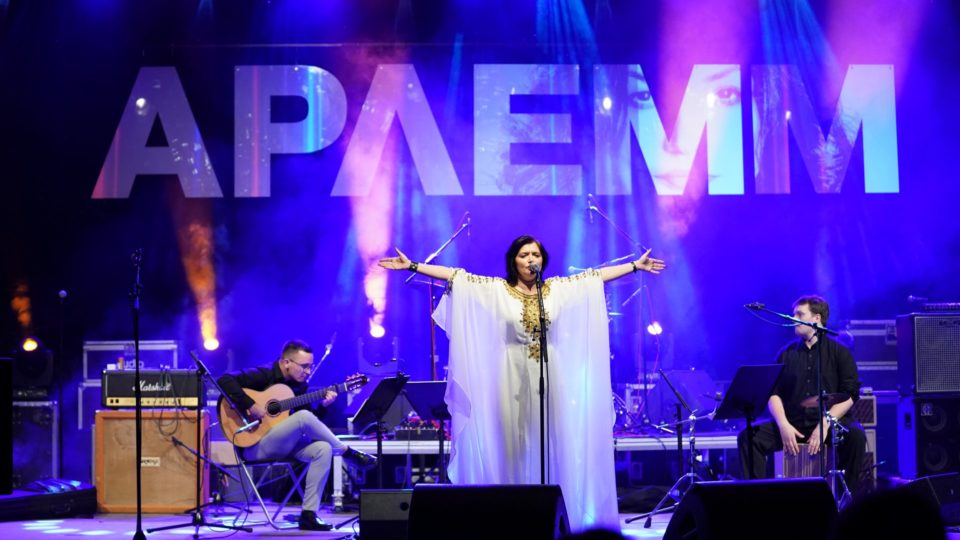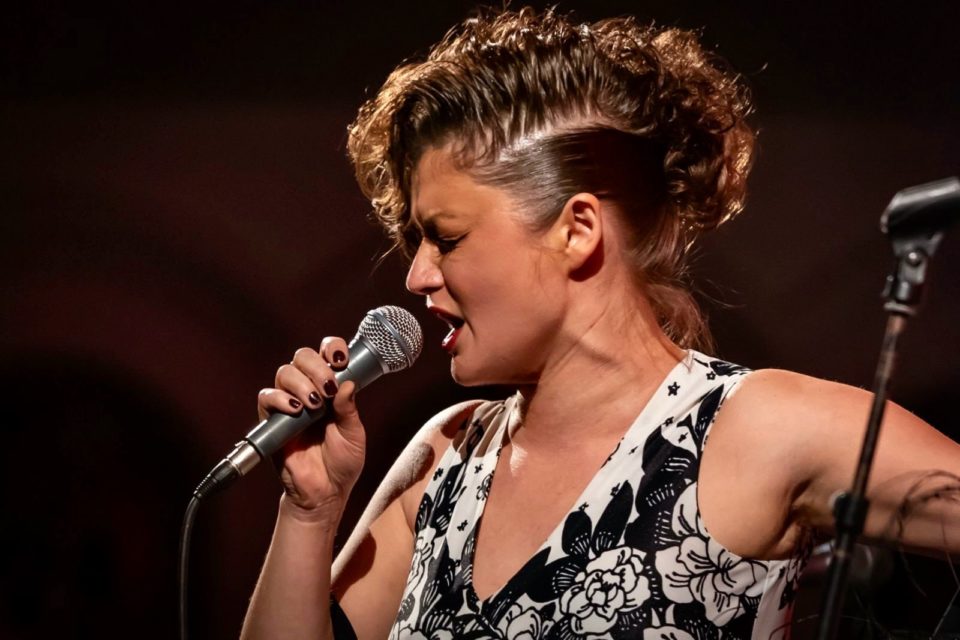
Sixteen years ago, Sarajevo singer-songwriter Maja Milinković first heard Portuguese fado (meaning ʻfateʼ in Portuguese). She has since become a pioneer, along with her ensemble, in introducing this musical genre to Bosnia and Herzegovina. Merging it with the traditional Bosnian sevdah/sevdalinka genre, Milinković has managed to combine different rhythms and meditative character into one.
Milinković, a multiple award-winning and internationally recognized Sarajevo singer-songwriter, first heard Fado performed by the ‘queen’ of the genre, Amália Rodrigues, back in 2008.
“I like to say that Fado found me. It was a great passion and love at first sight, and later, the desire for further exploration emerged. Fado completely changed my life. I learned a new, very demanding language, got to know a completely different music culture, and it has all resulted in my long-standing career in Portugal,” says Milinković.
The musical genre, Fado, dates back to the 18th century, and is characterized by sad melodies and lyrics, often focusing on the sea and the experiences of the poor. This is loosely captured by the Portuguese word saudade, meaning nostalgia, a longing for home. It is believed to be a blend of rhythms first introduced into the Portuguese-speaking music scene by African slaves in Brazil, with traditional sounds of rural Portugal, itself influenced by Arabic culture.

Perhaps fittingly, Milinković regards her fascination and affection for Portuguese Fado as as “fate”. In 2011, she founded an ensemble called “Fado veradeiro” (True Fado), which is the only such ensemble in Bosnia and Herzegovina. A year later, she recorded her first Fado song entitled, “Tudo isto e fado” (Everything is Fado).
Reflecting on the beginning of her Fado career, she emphasizes that it was when her love for Fado took hold that she first decided to perform concerts in Sarajevo. The ensemble was with Mirza Redžepagić, whom Milinković describes as a “brilliant guitarist”, whose current work focuses on blending flamenco with sevdah.
“We were pioneers in bringing Fado to our country. It was a complete surprise for me, but also a challenge. We started with concerts [at Baščaršija Nights, Chamber Theater 55] that were very well received by the audience. After six months, I came to the conclusion that I should continue down that path,” explains Milinković.
Fado and Sevdalinka: Twin Sisters
Milinković likes to say that fado and sevdah are twin sisters raised in different regions. Fado is more a blend of different rhythms originating from the Iberian Peninsula, while sevdalinka is more meditative in character. Both, she adds, are urban genres that tell stories about life, love, and longing.

“They are narrative in nature, without a chorus,” emphasizes Milinković.
Milinković merges Fado and sevdah on her album, Fadolinka, from 2019. Her latest album, Fadolinka 2.0, is available on all streaming platforms.
“For me, it was completely natural. After getting to know Fado, I returned to my roots and built a bridge called Fadolinka between these two sculptures, one that belongs to me by birth and the other that has adopted me. Fadolinka is very well recognized and accepted, and it’s my brand,” states Milinković.
Sarajevo, You Sleep in my Soul
With her fadolinka song, Kada dunja zamiriše (When the Quince Tree Blossoms), our interviewee won an award at the Split Festival last year. Her 2021 album Kaftan D’Alma has been acclaimed worldwide. Her song, Sarajevo u duši mi spavaš (Sarajevo, You Sleep in my Soul), topped the iTunes charts in the United Arab Emirates in February 2024. Milinković says that all these successes are gratifying but also represent an obligation and expectation to bring something new yet personal each time. With emotion, she reflects on her song, Sarajevo u duši mi spavaš, dedicated to her beloved hometown.
“This song has touched the hearts of Sarajevans and is recognized as one of the most beautiful songs written about the city of Sarajevo, which makes me very proud and happy. This song is a declaration of love to my city. Wherever you go in the world, Sarajevo never leaves you,” the singer-songwriter declares. Milinković notes that she is currently focused on preparing a new single. She did not wish to talk much about it during our interview, but said she hopes that the upcoming spring single will be well-received. She also hints at more surprises to come.
Maja Milinković expresses gratitude to everyone who follows her work. At the end of the interview, she quotes the Portuguese poet, Fernando Pessoa: “To be great, be whole: nothing that’s you should you exaggerate or exclude. In each thing, be all. Give all you are in the least you ever do. The whole moon, because it rides so high, is reflected in each pool.”






